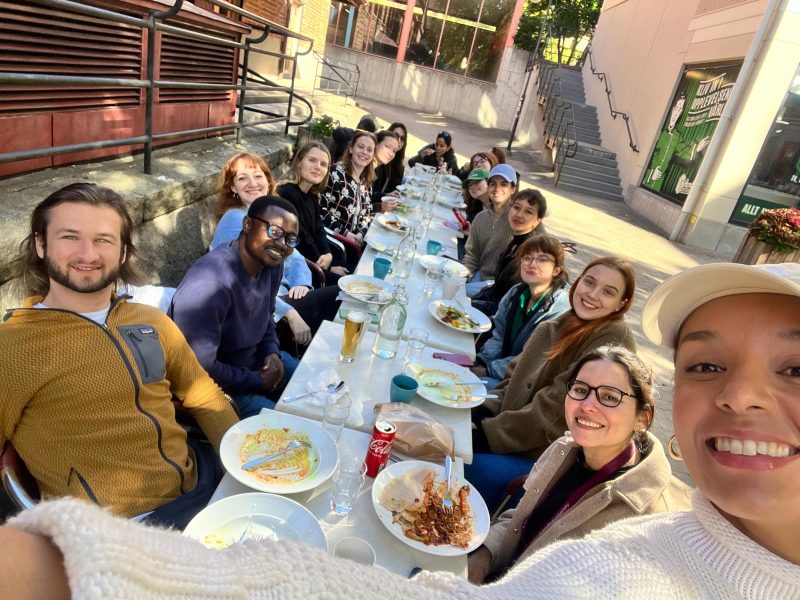
What it means to study global health: sharing the classroom with lifelong professionals
It is no secret that the very core of global health is made up of a myriad of disciplines that come together for a common goal: achieving a healthier world for all. This means that, contrary to popular belief, people from all kinds of backgrounds are attracted to this field—not just healthcare—and it is no different at KI. Our class is made up journalists, nurses, political scientists, dentists, psychologists, researchers, medical doctors, lab technicians, and honestly, I could go on. This makes for an incredible exchange of knowledge and perspectives within the classroom. However, to be frank, I found myself quite intimidated during the first few weeks of class.
When impostor syndrome knocks at your door
I remember the first day of the first course in the programme, Intro to Global Health, and how small and unprepared I felt while hearing the backgrounds of my would-be classmates. I found myself indulging in the very toxic practice that we’re always advised against: comparing myself to the rest. I’ve only recently finished my bachelor’s degree and my work experience falls short when put against that of others. Yes, everyone has their own path and story, and I knew that back then, yet it is easier to think things than actually feel them and, in my case, my mind was playing tricks on me.
When you realise you’re not the only one
To my relief, I found solace in classmates who were on the same boat—hey, at least we could be overwhelmed and feel like kindergarteners together! But on getting to know those we thought were so much farther ahead, we realised something funny.
When you figure out that you’re actually more similar than you thought
It wasn’t just us who were feeling a bit intimidated. At some point, between discussing public health indicators and the recent major cuts in global health, some of the people with years of professional experience revealed how sometimes they felt like coming back to school, after so many years, would be a formidable challenge, as opposed to those of us who had just recently graduated.
When it all came together
Up to this point, it had not occurred to me—or to any of my fellow ‘Kindergarteners’—that those with so much life experience could feel hesitant to return to academics because of that, and that they thought those of us fresh out of school would have an easier time. Looking back, I think it is safe to say that, even though it was different situations, we were all feeling the same thing: reservation and hesitancy. Yet these situations are the very things that came to characterise our programme.
When it became what defines the classroom
Now, two months into the programme, our lectures have become a sort of common playground where all sorts of ideas are interchanged, anecdotes shared, and sometimes even perspectives challenged, all through students and professors alike. Our very own differences are what made us come together and that, right there, is the core of global health in action. This is what makes our programme invaluable: the opportunity to witness such passion and greatness, all with the shared goal of a healthier, more fulfilling life for all.
And that’s it for today, no more drama. Stay tuned for the next student spotlight, where we’ll be hearing from Robin (one of those ‘Kindergarteners’).
Luis - Global Health
Hey! I’m Luis, and I'm currently studying the Master’s in Global Health. I’m from San Luis Potosí, Mexico (no, the city wasn’t named after me) but also grew up in Belgium and Colombia, which sparked my love for international living. After completing my Bachelor’s in Montreal, I felt ready for a new adventure, this time in Sweden! Experiencing diverse healthcare systems inspired my passion for global health, which led me straight to KI. In my free time, I enjoy city strolls and fika—though I only drink milk, not coffee!

0 comments